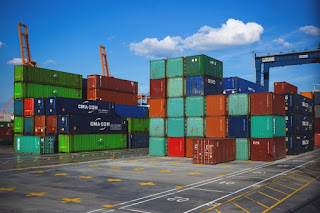Thursday, 29 September 2016
Do Trade Agreements Matter That Much Anyway?
I don't think ultimately that economics was really important to the Brexit debate. That seems like a strange thing to say given that so much of the argument centred around how disastrous the effects of withdrawal would be from one side, and the huge benefits of getting out of the sinking European market and freely trading on the high seas. But if it was just about economics we'd be leaving Europe and joining China. If the European single market is worth being in then think how juicy the Chinese one is. And now we have voted out nobody is asking if the EU might come up with a big enough lump sum to pay us to stay. At the end of the day the real question is about the UK's place in the world. If you don't want Europe to influence Britain and are correspondingly uninterested in having any influence in it then getting out makes sense regardless of the costs or the benefits.
So it was never really about the money.
But money is nonetheless important and now we can't do anything about it, does leaving the trade aspect of the EU matter?
Going right back to basics, in economic terms big is better. In a big market you have more opportunities for specialisation which means more efficiencies. So you want to be in the biggest market you can be in. But leaving the EU doesn't mean we can't trade with Europe - it just means we have given up our influence on how it develops. So as even Nigel Farage hasn't been rude enough to provoke a full scale Napoleon style blockade, we will still be trading with the same people we always have. There will be a bit more paperwork and some extra tariffs to pay, but only marginal deals will cease.
It is a bit more complicated by the way modern global trade is done where things can contain components from all over the world. There are plenty of deals done for which even a tiny tariff will be enough to get the business rerouted. These are more likely to be disadvantageous to the UK than not, but the world is complicated enough that there will be some positive cases as well. We'll never know the impact because the decisions will be made in heads somewhere and never appear on official statistics. There is also the matter of investment in productive capacity. This is usually made with a long term perspective, and again is likely to be a mix of positive and negative. If you are thinking of building a factory in Europe, whether or not the UK is in the single market is a factor. It won't necessarily be the actual tariff rate so much as the highest figure you think might get imposed that matters there.
So it doesn't look likely that the impact of leaving Europe will be positive for the UK, but it is entirely possible the impact will be small. It is almost certain that we will never be sure one way or the other. It's a one time experiment, and there are so many other factors that need to be considered I can't imagine that anyone will ever be able to come up with the definitive answer that nobody can challenge.
This is borne out by the continuing debate around NAFTA, which is a trade bloc comprising the US, Canada and Mexico. This has been in operation for over 20 years now, and there is still no consensus on whether it has been good or bad for any of the participants. If the results are so ambiguous I think it is fair to say that whether positive or negative they aren't all that great.
The UK has been in the EU a lot longer so the impacts on the UK - good or bad - are likely to be bigger. Even so, it is more likely to be a debating point than a data point.
Subscribe to:
Post Comments (Atom)
I Don't Think Things Are So Bad
Weirdly I feel very optimistic. I was expecting the Tories to win big. Well they won a lot bigger than I expected. Their losses in th...

-
Making decisions is tough, and even when you get them right it is easy to delude yourself about how clever you were. I was pretty sure that...
-
"Something Will Turn Up" I get very interested in opinion polls sometimes. Over the summer I found them particularly intere...
-
I follow a lot of leavers on Twitter. I like hearing opinions that differ from mine. It can be a tedious business though. You read th...



No comments:
Post a Comment